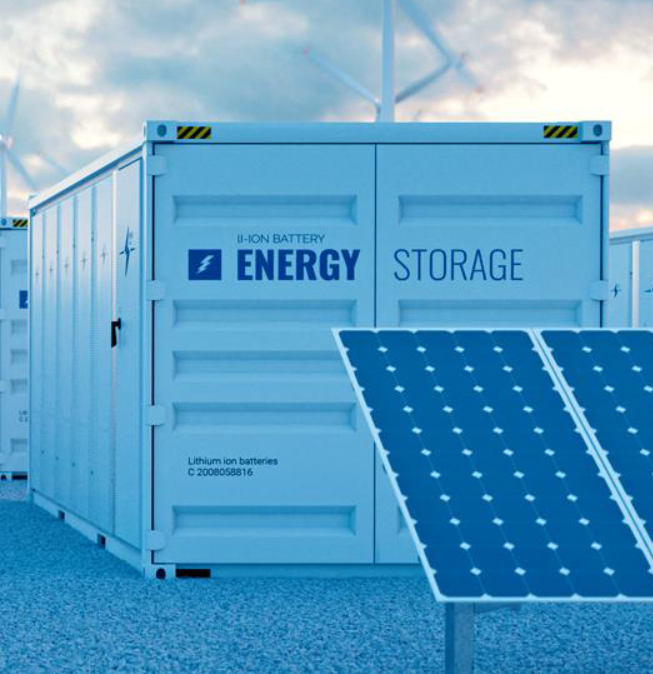Home solar backup battery system is an advanced energy solution that combines solar energy technology and energy storage technology. It cleverly integrates components such as solar photovoltaic panels, charging controllers, energy storage batteries and inverters to provide a stable, reliable and environmentally friendly power supply system for households. Solar photovoltaic panels, as the core part of the system, are responsible for converting solar energy into direct current energy. These photovoltaic panels are usually installed in sunny places such as roofs or balconies to maximize the absorption of solar energy. The charge controller is responsible for monitoring and managing the charging process of the battery, ensuring that the battery is charged at the appropriate voltage and current to prevent overcharging and damage to the battery. Energy storage batteries are another key component of a home solar backup battery system. It is responsible for storing the electricity generated by solar photovoltaic panels and releasing the electricity for home use when needed. The common types of energy storage batteries are lead-acid batteries and lithium-ion batteries, which have different performance and life characteristics, and users can choose the appropriate battery type according to their needs.
The inverter is a device that converts direct current energy into AC power to meet the needs of household electricity. It also has overload protection, overcurrent protection and other functions to ensure the stable operation of the system. The advantages of home solar backup battery systems are obvious. First of all, it makes full use of solar energy, a renewable energy source, which is both environmentally friendly and energy-saving. Secondly, the system is independent and independent, not restricted by the power grid, especially in emergencies such as power outages, which can provide a stable power supply for families. In addition, installing a home solar backup battery system can also increase the value of the property, as it represents an environmentally friendly and energy efficient lifestyle. However, home solar backup battery systems also have some limitations. For example, its power generation efficiency is affected by environmental factors such as weather and season, and stable power generation cannot be fully guaranteed. In addition, the energy storage battery is limited, generally can only meet a few hours of power demand, for a long time of power failure may not be able to fully cope. In general, the home solar backup battery system is an energy solution with broad application prospects. With the continuous advancement of technology and the expansion of the market, it is expected to provide more households with a stable, reliable and environmentally friendly power supply in the future.
with the progress of science and technology and the enhancement of environmental awareness, home solar battery back-up system gradually become an important option for the modern family. This system uses solar energy to provide electricity for the home, which is not only environmentally friendly and energy-saving, but also provides backup power in the case of power shortage or power failure, ensuring the stability and sustainability of household electricity.
The household solar standby battery system is mainly composed of solar panels, battery packs, charging controllers and inverters.
1. Solar panels: are responsible for converting solar energy into direct current electricity. Its efficiency, power and area parameters directly affect the power generation of the system.
2. Battery pack: used to store electrical energy. When the solar energy is sufficient, the battery pack is charged; During power shortages or power outages, the battery pack provides power to the home.
3. Charge controller: is responsible for controlling the charging process of the battery pack, preventing overcharge or undercharge, and protecting the safety and life of the battery pack.
4. Inverter: converts direct current into alternating current, so that household appliances can be used normally.
& have spent 1. Environmental protection and energy saving: Use renewable energy to reduce dependence on traditional electricity and reduce carbon emissions.
2. Economical: In the long run, solar energy systems can save money on electricity bills. At the same time, the backup battery system provides power in the event of power failure, reducing the loss caused by power failure.
3. Good stability: household solar backup battery system can ensure the stability and continuity of household electricity when there is a power shortage or power failure.

& have spent 1. Select the power according to the household power needs: Select the solar panel and battery pack with the right power according to the household power consumption and the needs of the electrical equipment.
2. Pay attention to the efficiency and quality of the system: Select efficient and stable components such as solar panels and charge controllers to ensure the overall performance and life of the system.
3. Consider installation and maintenance: Choose a system that is easy to install and maintain, reducing later costs and troubles.
& have spent 1. Installation location selection: Select a sunny and well-ventilated place to install solar panels.
2. System installation: Professional installation to ensure the security and stability of the system.
3. Use and maintenance: Regularly check the working status of the system, timely maintenance and replacement of damaged parts.
& have spent Home solar backup battery systems are ideal for modern homes. It is not only environmentally friendly and energy efficient, but also provides a stable power supply during power shortages or blackouts. By understanding its composition, advantages and selection methods, we can make better use of this system to create a more comfortable and safe living environment for families. Of course, the above content is only a brief introduction to the household solar backup battery system. For more detailed information or assistance, please consult a professional or consult the relevant literature.